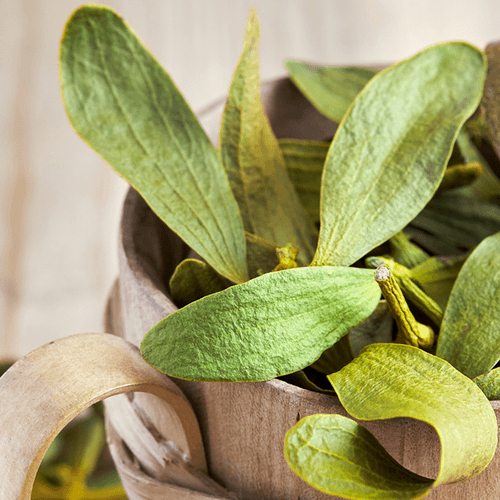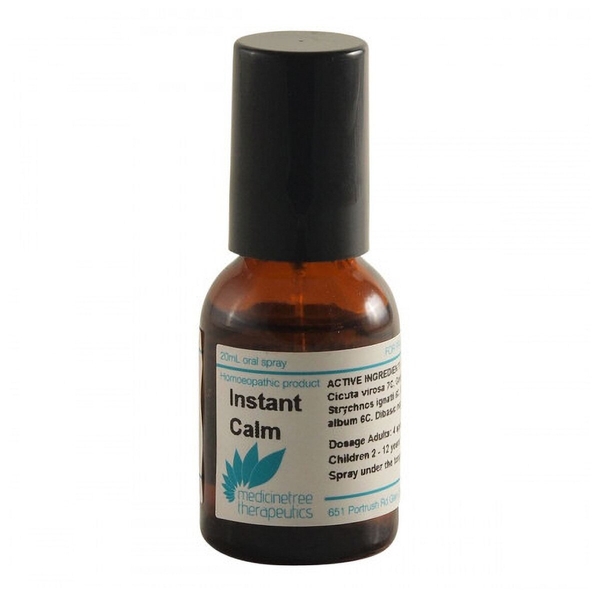
European mistletoe
Scientific names: Viscum album
Family: Viscaceae
Alternate names: All-Heal, Banda, Birdlime Mistletoe, Blandeau, Bois de Sainte-Croix, Bouchon, Devil's Fuge, Drudenfuss, Eurixor, Guérit-Tout, Gui, Gui Blanc, Gui Blanc d'Europe, Gui des Feuillus, Gui d'Europe, Gui Européen, Helixor, Herbe de Chèvre, Hexenbesen, Hurchu, Iscador, Isorel, Leimmistel, Mistlekraut, Mistletein, Mistletoe, Muérdago Europeo, Mystyldene, Nid de Sorcière, Pain de Biques, Rini, Verquet, Vert-Bois, Vert de Pommier, Visci, Vogelmistel, Vysorel
Actions: Anticancer, Cardiovascular, Hepatotoxic, Neurologic/CNS
Background
European mistletoe (Viscum album) is a plant that grows on several different trees throughout the world. The berry, leaf, and stem are used as medicine.
European mistletoe contains chemicals that might stimulate the immune system and kill certain cancer cells, but it's not clear if these effects occur in the human body.
People sometimes use European mistletoe for various types of cancer, including bladder cancer, breast cancer, lung cancer, and many other conditions, but there is no good scientific evidence to support these uses. Most research has evaluated European mistletoe injections given by a healthcare provider. There is very little research on the use of European mistletoe taken by mouth.
European mistletoe contains chemicals that might stimulate the immune system and kill certain cancer cells, but it's not clear if these effects occur in the human body.
People sometimes use European mistletoe for various types of cancer, including bladder cancer, breast cancer, lung cancer, and many other conditions, but there is no good scientific evidence to support these uses. Most research has evaluated European mistletoe injections given by a healthcare provider. There is very little research on the use of European mistletoe taken by mouth.
Safety Safety definitions
When taken by mouth: European mistletoe is possibly safe when used appropriately. But taking more than three berries or two leaves is likely unsafe and can cause serious side effects, including vomiting, diarrhea, seizures, and liver damage. Do not take European mistletoe without the advice of your healthcare professional.
Breast-feeding: There isn't enough reliable information to know if European mistletoe is safe to use when breast-feeding. Stay on the safe side and avoid use.
"Auto-immune diseases" such as multiple sclerosis (MS), lupus (systemic lupus erythematosus, SLE), rheumatoid arthritis (RA), or other conditions: European mistletoe might cause the immune system to become more active. This could increase the symptoms of auto-immune diseases. If you have one of these conditions, it's best to avoid using European mistletoe.
Leukemia: European mistletoe might make leukemia worse. If you have leukemia, don't take European mistletoe.
Organ transplant: European mistletoe might make the immune system more active. A more active immune system might increase the risk of organ rejection. If you have had an organ transplant, avoid European mistletoe.
Surgery: European mistletoe might affect blood pressure. This might interfere with blood pressure control during and after surgery. Stop taking European mistletoe at least 2 weeks before a scheduled surgery.
Special Precautions & Warnings:
Pregnancy: European mistletoe is likely unsafe when taken by mouth during pregnancy. It might stimulate the uterus and cause a miscarriage.Breast-feeding: There isn't enough reliable information to know if European mistletoe is safe to use when breast-feeding. Stay on the safe side and avoid use.
"Auto-immune diseases" such as multiple sclerosis (MS), lupus (systemic lupus erythematosus, SLE), rheumatoid arthritis (RA), or other conditions: European mistletoe might cause the immune system to become more active. This could increase the symptoms of auto-immune diseases. If you have one of these conditions, it's best to avoid using European mistletoe.
Leukemia: European mistletoe might make leukemia worse. If you have leukemia, don't take European mistletoe.
Organ transplant: European mistletoe might make the immune system more active. A more active immune system might increase the risk of organ rejection. If you have had an organ transplant, avoid European mistletoe.
Surgery: European mistletoe might affect blood pressure. This might interfere with blood pressure control during and after surgery. Stop taking European mistletoe at least 2 weeks before a scheduled surgery.
Effectiveness
NatMed Pro rates effectiveness based on scientific evidence according to the following scale: Effective, Likely Effective, Possibly Effective, Possibly Ineffective, Likely Ineffective, Ineffective, and Insufficient Evidence to Rate.
Possibly ineffective Effectiveness definitions
- Head and neck cancer. Injecting European mistletoe extract into the skin before or after surgery or radiation for head and neck cancers does not improve survival. It's not clear if taking European mistletoe by mouth helps. Injection products can only be given by a healthcare provider.
- The most serious type of skin cancer (melanoma). Injecting European mistletoe extract into the skin after surgery for melanoma does not improve survival or reduce the risk of the cancer returning. It's not clear if taking European mistletoe by mouth helps. Injection products can only be given by a healthcare provider.
Dosing & administration
There isn't enough reliable information to know what an appropriate dose of European mistletoe might be. Keep in mind that natural products are not always necessarily safe and dosages can be important. Be sure to follow relevant directions on product labels and consult a healthcare professional before using.
Interactions with pharmaceuticals
Medications for high blood pressure (Antihypertensive drugs)
Interaction Rating=Moderate Be cautious with this combination.
European mistletoe might lower blood pressure. Taking European mistletoe along with medications that lower blood pressure might cause blood pressure to go too low. Monitor your blood pressure closely.
Medications that decrease the immune system (Immunosuppressants)
Interaction Rating=Moderate Be cautious with this combination.
European mistletoe can increase the activity of the immune system. Some medications, such as those used after a transplant, decrease the activity of the immune system. Taking European mistletoe along with these medications might decrease the effects of these medications.
Interactions with herbs & supplements
Herbs and supplements that might lower blood pressure: European mistletoe might lower blood pressure. Taking it with other supplements that have the same effect might cause blood pressure to drop too much. Examples of supplements with this effect include andrographis, casein peptides, L-arginine, niacin, and stinging nettle.
Interactions with foods
There are no known interactions with foods.
vital.ly has licensed monographs from TRC Healthcare.
This monograph was last reviewed on 17/12/2024 11:00:00 and last updated on 28/03/2018 18:57:25. Monographs are reviewed and/or updated multiple times per month and at least once per year.
Natural Medicines disclaims any responsibility related to medical consequences of using any medical product. Effort is made to ensure that the information contained in this monograph is accurate at the time it was published. Consumers and medical professionals who consult this monograph are cautioned that any medical or product related decision is the sole responsibility of the consumer and/or the health care professional. A legal License Agreement sets limitations on downloading, storing, or printing content from this Database. No reproduction of this monograph or any content from this Database is permitted without written permission from the publisher. It is unlawful to download, store, or distribute content from this site.






